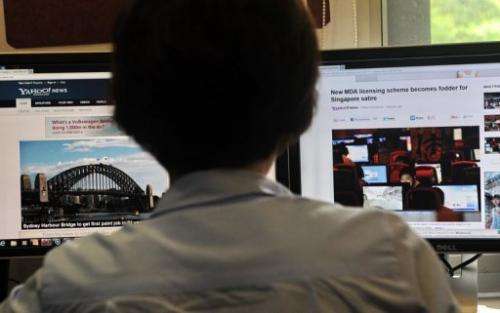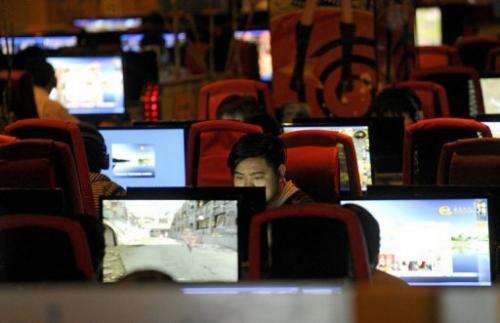Singapore defends Internet licencing rules

Singapore's media regulator on Thursday sought to allay fears that a controversial new rule requiring news websites to obtain licences was aimed at stifling Internet freedom.
The surprise requirement, which takes effect on Saturday, triggered an outcry in the online community after a popular news site operated by US-based Yahoo! was included among 10 sites subject to licencing.
The rest are all local mainstream news sites and there are fears among bloggers critical of the government that they could be targeted next.
"The new licencing framework is not intended to clamp down on Internet freedom," the Media Development Authority (MDA) said in reply to queries from AFP, adding that it was "not MDA's intent to place onerous obligations" on the licencees.
The MDA on Tuesday said websites that have at least 50,000 unique visitors from Singapore every month and publish at least one local news article per week over a period of two months must obtain an annual licence.
Websites granted a licence will have to remove "prohibited content" such as articles that undermine "racial or religious harmony" within 24 hours of being notified by the authorities.
"The new framework provides greater clarity on prevailing content standards in the Internet Code of Practice and there is no change in content standards," the MDA said, referring to earlier regulations first issued in 1997.

Under the code, prohibited content includes "material that is objectionable on the grounds of public interest, public morality, public order, public security, national harmony, or is otherwise prohibited by applicable Singapore laws."
The MDA said guidelines within the new licencing scheme will clarify the prohibitions.
It cited the "Innocence of Muslims" video that angered the global Islamic community last year as an example of banned content.
Licenced websites will have to put up Sg$50,000 ($39,500) as a "performance bond" that can be forfeited if MDA regulations are not complied with.
"Should any licensee experience difficulties in meeting their licensing requirements, we welcome them to discuss their concerns with us," the MDA said.
Singapore's feisty blogging community has slammed the new rule as the latest government attempt to suppress dissent and encumber independent reporting.
Yahoo! Singapore, which has a team of reporters producing independent coverage, has become a magnet for anti-government comments posted by readers in reaction to local news stories.
The MDA said the licence guidelines will "apply to all content on the news sites, including readers' comments on the news sites".
Singapore is one of Asia's wealthiest and most wired nations but also one of the most regimented.
Its traditional media are widely seen to be pro-government, giving rise to alternative sources of news online amid growing discontent with the ruling party and its policies on immigration, the economy and public services.
© 2013 AFP



















